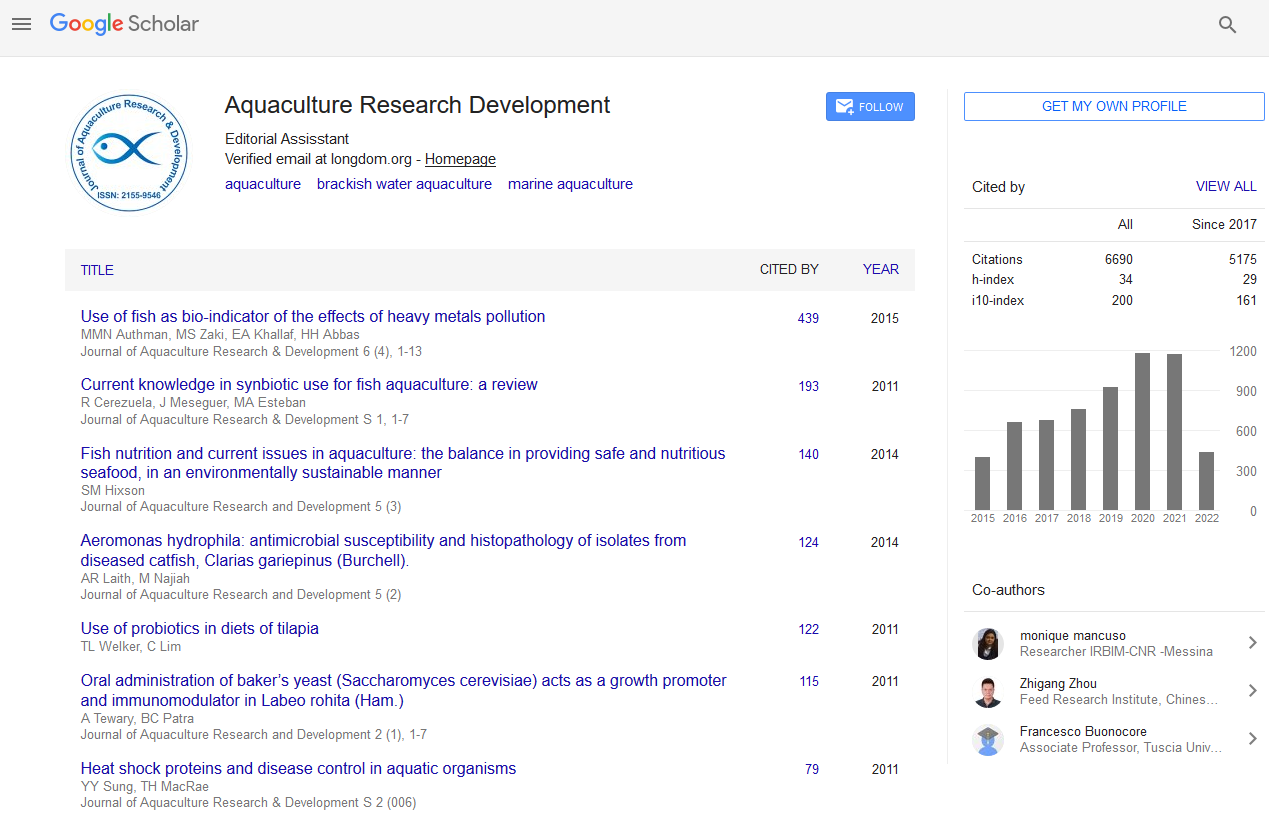PMC/PubMed Indexed Articles
Indexed In
- Online Access to Research in the Environment (OARE)
- Open J Gate
- Genamics JournalSeek
- JournalTOCs
- Scimago
- Ulrich's Periodicals Directory
- Access to Global Online Research in Agriculture (AGORA)
- Electronic Journals Library
- Centre for Agriculture and Biosciences International (CABI)
- RefSeek
- Directory of Research Journal Indexing (DRJI)
- Hamdard University
- EBSCO A-Z
- OCLC- WorldCat
- Scholarsteer
- SWB online catalog
- Virtual Library of Biology (vifabio)
- Publons
- MIAR
- University Grants Commission
- Euro Pub
- Google Scholar
Useful Links
Share This Page
Journal Flyer

Open Access Journals
- Agri and Aquaculture
- Biochemistry
- Bioinformatics & Systems Biology
- Business & Management
- Chemistry
- Clinical Sciences
- Engineering
- Food & Nutrition
- General Science
- Genetics & Molecular Biology
- Immunology & Microbiology
- Medical Sciences
- Neuroscience & Psychology
- Nursing & Health Care
- Pharmaceutical Sciences
Towards sustainable aquaculture: Navigating international law and policy currents
International Conference on Aquaculture & Fisheries
July 20-22, 2015 Brisbane, Australia
David L Vander Zwaag
ScientificTracks Abstracts-Workshop: J Aquac Res Development
Abstract:
This presentation will highlight three main international law and policy ?current systems? that set courses for achieving sustainable aquaculture operations around the globe. First, key provisions of the 1982 UN Convention on the Law of the Sea will be described. The Convention grants coastal States jurisdictional rights over aquaculture developments within national zones of jurisdiction, including 200 nautical mile exclusive economic zones, but also imposes environmental responsibilities, such as the fundamental duty to protect and preserve the marine environment. Second, the role of international environmental law agreements in setting directions for the management of aquaculture will be reviewed with the Convention on Biological Diversity (CBD) being central. For example, the CBD?s Strategic Plan for Biodiversity 2011-2020 includes a target (target 7) for managing aquaculture areas sustainably by 2020 in order to ensure the conservation of biodiversity. A CBD technical report on solutions for sustainable aquaculture, published in 2004, suggests best practices including avoiding the use of non-native species and encouraging the culture of different species together (polyculture). A third source of international guidance for aquaculture is documents emanating from the Food and Agriculture Organization (FAO). The implications of the FAO Code of Conduct for Responsible Fisheries for aquaculture will be emphasized along with key FAO technical guidelines applicable to aquaculture calling for precautionary and ecosystem approaches.
Biography :
David L Vander Zwaag is Professor of Law and Canada Research Chair in Ocean Law and Governance at the Marine & Environmental Law Institute, Dalhousie University. He is a member of the IUCN?s World Commission on Environmental Law (WCEL) and co-chairs the WCEL Specialist Group on Oceans, Coasts and Coral Reefs. He has published over 150 papers in the marine and environmental law field. His co-edited book publications include, among others, Polar Oceans Governance in an Era of Environmental Change and Aquaculture Law and Policy: Towards Principled Access and Operations.


